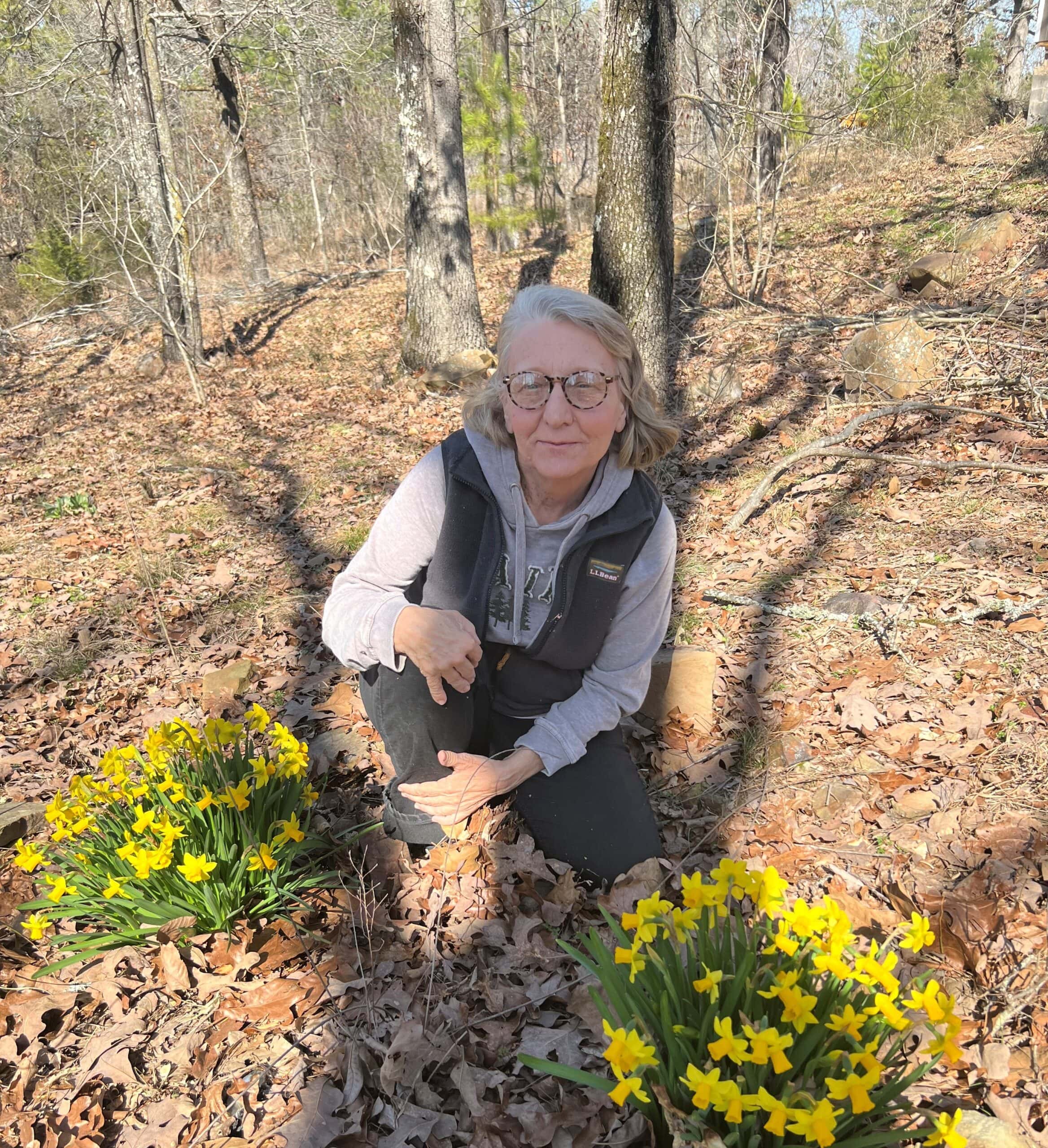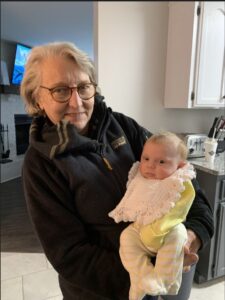View Larger Image

Vicki Wicker, Ph.D., is enjoying life while being treated for cancer.
Image by David Wicker
Myeloma Patient Writes About Her ‘Ordinary Journey’
| Creative works have their beginnings in various ways.
For multiple myeloma survivor Vicki C. Wicker, Ph.D., it was the loss of a loved one and social media.
“My mom passed away around two years before my diagnosis,” said Wicker. “Every Sunday I would write something on Facebook with a short scripture and a few paragraphs about coping with the grief, and I always put in a verse or two from a hymn. People really loved it and asked me to keep doing it.
“I would get friend requests as others heard about what I was writing, and I was asked if I could put this together in a book since they wouldn’t have seen the previous postings.”
The result was “With Me Always: My Ordinary Journey Through Cancer” published in 2021. The book contains 40 devotionals written by Wicker detailing her illness and treatment at the University of Arkansas for Medical Sciences (UAMS).
“So many people are touched by one form of cancer or another. It was very helpful for people to hear a first-hand account of the ups and downs.”
The devotionals follow a similar pattern as Wicker’s social media postings — a scripture followed by her thoughts and lyrics from a hymn.
A native of Memphis, Wicker lives with her husband, David, in Conway and taught art and psychology for 30 years at Arkansas State University’s Beebe and Heber Springs campuses.
As with many serious illnesses, Wicker’s diagnosis came from something routine.
“It was January of 2019, and I was preparing for a new semester,” Wicker said. “I felt sick and thought maybe I had the flu or a sinus infection.”
Wicker’s husband is a nurse practitioner and was working in the emergency room of a hospital in Searcy, where the Wickers lived at the time. She went to the hospital for flu swab, which came back normal. Labs on blood and urine however, revealed problems with her kidney function.
“I was in acute kidney failure and was admitted to the hospital,” said Wicker. “By the next day, the multiple myeloma diagnosis was confirmed, and I was on the way to UAMS.”
Sharmilan Thanendrarajan, M.D., Ph.D., is in charge of Wicker’s care and made an immediate impact on her.
“That first day I got to UAMS it was late, but Dr. Thanendrarajan came by to see me. I was impressed,” Wicker said.
Wicker’s book notes rough times at the beginning, including a bout of arrhythmia and a stay in intensive care. Fortunately, her condition stabilized, and she began to respond to therapy.
About 10 months after doctors discovered she was in kidney failure, her kidney function improved enough to end dialysis.
“I found the dialysis more difficult than the cancer treatment,” said Wicker.
More positive news continued. Her bone marrow aspiration showed no cancer after 15 months. Her myeloma markers were zero two years after the initial finding of multiple myeloma.
“She is in stringent defined complete remission,” said Thanendrarajan.
One thing Wicker still deals with is a compromised immune system. Being unable to go to campus led to the discontinuation of her teaching career.
“I was able to teach online, but to me the enjoyment of teaching is being with the students, so I decided to hang it up,” Wicker said.
More than five years later, she feels good.
“I feel normal. It’s a time of your life when you start to slow down,” said Wicker. “I know I’m not able to do as much as I could before my diagnosis, but it could be because I’m 64 and not necessarily because of the myeloma.”
She has positive thoughts about her treatment.
“I cannot say a negative thing about anyone at UAMS. From the people who check you in, the people who roll you around on the gurneys, from the nurses to the doctors, everybody was so kind. It was amazing,” Wicker said.
Wicker said Thanendrarajan gave her a valuable piece of advice during her treatment.
“He told me to keep a routine,” said Wicker. “I would encourage people to get up and get dressed every day, take a shower, fix your hair — you’re going to feel better.”
In the book Wicker credits her husband David for being beside her through every step, and she offers this guidance for others in a similar situation.
“People want to help, and you should accept it. Not only are you blessed by them helping you, but they are also blessed by being able to help you.”
